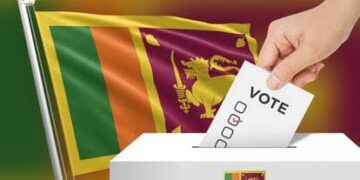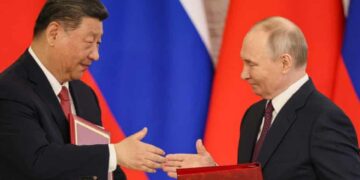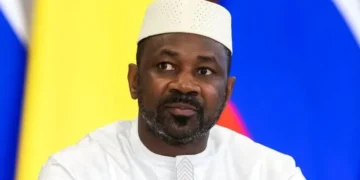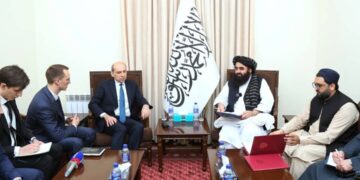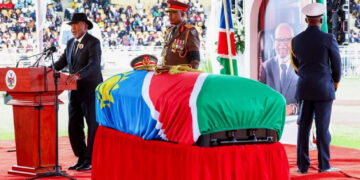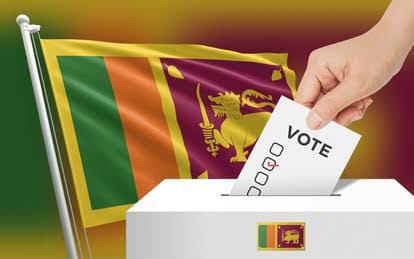By Lucy Adautin
Millions of Sri Lankans headed to the polls on Saturday to choose a president who will be responsible for strengthening the country’s delicate economic recovery after enduring its most severe financial crisis in decades.
From Sri Lanka’s 22 million population, over 17 million are eligible to vote in what has emerged as a tight race among incumbent President Ranil Wickremesinghe, leading opposition figure Sajith Premadasa, and Marxist-oriented contender Anura Kumara Dissanayake, who recently led in an opinion poll.
Properly organized polling stations staffed by public officials and police directed Sri Lankans on the voting process as residents in Colombo, the largest city, formed lines after polls opened at 7 a.m. (0130 GMT).
In Visakha Vidyalaya, a school approximately 15 km from Colombo, a steady stream of voters was observed early in the morning, with families, some assisting their elderly parents, lining up alongside coir ropes that helped maintain order.
Large replica of the ballot paper was displayed at the entrance to the booth, which was positioned near blooming flower beds and a row of classrooms.
“I think we desperately need a change and I think a lot of people feel the same way. For us to have a future the entire country must have a future, first,” said Niroshan Perera, 36, a supporter of Dissanayake.
Voting was proceeding peacefully across the island nation and queues outside booths lengthened as the day progressed, local TV channels showed. Polls close at 4 p.m. (1030 GMT), with counting scheduled to start shortly afterward. The Election Commission is expected to announce the winner on Sunday.
Over 13,000 polling stations were set up across the country and 250,000 public officials deployed to manage the election, R.M.L. Rathnayake, the head of Sri Lanka’s election commission said.
This election marks the first since Sri Lanka’s economy collapsed in 2022 due to a severe foreign exchange shortage, which left the island nation in the Indian Ocean struggling to afford essential imports such as fuel, medicine, and cooking gas.
In 2022, thousands of protesters took to the streets in Colombo, eventually occupying the president’s office and residence, prompting then-President Gotabaya Rajapaksa to flee and subsequently resign.
Supported by a $2.9 billion bailout package from the International Monetary Fund, Sri Lanka’s economy has shown signs of a fragile recovery, yet the high cost of living remains a major concern for many voters.
Although inflation cooled to 0.5% last month from a crisis high of 70%, and the economy is forecast to grow in 2024 for the first time in three years, millions remain mired in poverty and debt, with many pinning hopes of a better future on their next leader.
“This is an election that will change the history of Sri Lanka. People are voting enthusiastically,” Dissanayake said after casting his vote at a temple in the outskirts of Colombo.
The winner will have to ensure Sri Lanka sticks with the IMF programme until 2027 to get its economy on a stable growth path, reassure markets, attract investors and help a quarter of its people climb out of crisis-induced poverty.
“The people have to decide the future of this country. I ask everyone to vote peacefully,” Wickremesinghe, accompanied by his wife, said after voting at the University of Colombo. “We have stabilised the government and the democratic system. I’m happy I’ve been able to make a major contribution to that.”
Sri Lanka’s ranked voting system permits voters to select up to three preferred candidates.
If no candidate secures 50% in the initial count, a second round takes place between the top two contenders. During this round, the preferential votes from the eliminated candidates are redistributed, a scenario analysts suggest is probable due to the tight competition in this election.
